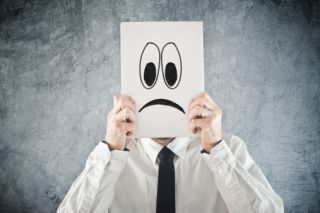埔捷運站1號出口 旁邊7-11巷子進入20公尺 看到夏朵美髮左轉 PM 7:00-9:30

不快樂 上癮症
Are You Addicted to Unhappiness? psychologytoday
There are a number of possible explanations for this “addiction” to unhappiness:
Deep-rooted insecurity or lack of self-esteem may cause some people to feel undeserving of happiness.
People who grew up with a parenting style characterized by excessive discipline and unrealistic expectations may have learned to equate unhappiness with love and success.
Lifelong struggles with trauma or other negative experiences may fuel an unconscious desire to continually return to the status quo of unhappiness.
Some people who seem comfortable in their misery actually may be suffering from an underlying mental health disorder.
Some people pride themselves on realism, believing that being practical or realistic also means focusing on the negative.
Because of decisions or experiences in their past, some people are consumed by guilt or regret that they cannot overcome. Instead, they choose to punish themselves and/or others.
Some people are afraid to feel joy since positive feelings might be a “setup” for disappointment.
The prospect of happiness strikes fear of the unknown for those who have never felt anything but unhappiness.
Dissatisfaction becomes a motivator to work harder, change jobs, eat healthier, spend more time with friends and family, or prevent unwanted behaviors or situations.
Some people make it a personal mission to take on the world’s problems as their own. While noble in some respects, these individuals cannot allow themselves to feel happiness when, for example, people are starving or global warming is damaging the planet.
Characteristics of the Chronically Unhappy
How do you know if you’re one of these people who live in a perpetual state of unhappiness? People who are addicted to unhappiness tend to:
Find reasons to be miserable when life gets “too good.”
Prefer to play the victim role and blame others rather than take personal responsibility for their choices.
Compete with friends and colleagues to see who has it the hardest.
Have difficulty setting and achieving goals, or conversely achieve goals only to find that they can’t enjoy their success.
Struggle to bounce back when things don’t go their way.
Distract, escape or cope by using drugs, alcohol, sex, food, or other addictive or compulsive behaviors.
Stop taking care of their basic needs, such as a healthy diet, regular exercise, and adequate sleep.
Feel enslaved to their emotions and powerless to change.
Feel dissatisfied even when life is going well.
Have dramatic, unfulfilling relationships.
性格特質 讓你活更久!
These Personality Traits May Help You Live Longer
By Robert Preidt
Stubbornness and optimism may be keys to a long life, a new study suggests.
Researchers hunting for clues to longevity focused on nine remote villages in the Cilento region of southern Italy. There, hundreds of residents are older than 90.
The study zeroed in on 29 of them, who ranged in age from 90 to 101.
While these elders had poorer physical health than younger family members, they had better mental well-being, according to the study.
"There have been a number of studies on very old adults, but they have mostly focused on genetics, rather than their mental health or personalities," said senior author Dr. Dilip Jeste.
Jeste is a professor of psychiatry and neurosciences at the University of California, San Diego School of Medicine.
"The main themes that emerged from our study, and appear to be the unique features associated with better mental health of this rural population, were positivity, work ethic, stubbornness and a strong bond with family, religion and land," Jeste said in a university news release.
Love of the land was particularly apparent.
"The group's love of their land is a common theme and gives them
a purpose in life. Most of them are still working in their homes and on the land. They think, 'This is my life and I'm not going to give it up,' " said study first author Anna Scelzo. She's a mental health worker in Chiavarese, Italy.
The researchers also found that the very old adults had significant self-confidence and decision-making skills compared to folks in their 50s, 60s and 70s.
"This paradox of aging supports the notion that well-being and wisdom increase with aging, even though physical health is failing," Jeste said.
The researchers plan to continue following the participants.
"Studying the strategies of exceptionally long-lived and lived-well individuals, who not just survive but also thrive and flourish, enhances our understanding of health and functional capacities in all age groups," Jeste said.
The study was published Dec. 12 in the journal International Psychogeriatrics.











0 意見:
張貼留言